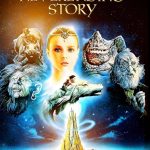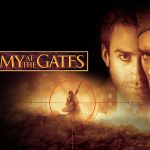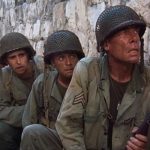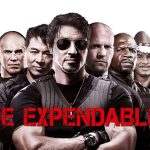Doctor Zhivago (1965) – Review

Plot:
The film follows the life of Yuri Zhivago (Omar Sharif), a physician and poet, who is torn between his duty to his wife, Tonya (Geraldine Chaplin), and his passionate love for Lara (Julie Christie), a woman he meets during the tumultuous period of revolution. As the Russian Empire collapses, Yuri’s life becomes increasingly complicated, with his personal struggles mirroring the larger political and social upheavals of Russia at the time.
The film alternates between Yuri’s relationships and his internal conflict as a man of medicine and art, while the world around him descends into chaos. Lara, too, is deeply affected by the revolution, particularly through her abusive relationship with Viktor Komarovsky (Rod Steiger), a powerful and manipulative figure in her life. The love triangle between Yuri, Lara, and Tonya is the emotional heart of the film, while the revolution serves as a powerful backdrop to their personal tragedies and fleeting moments of joy.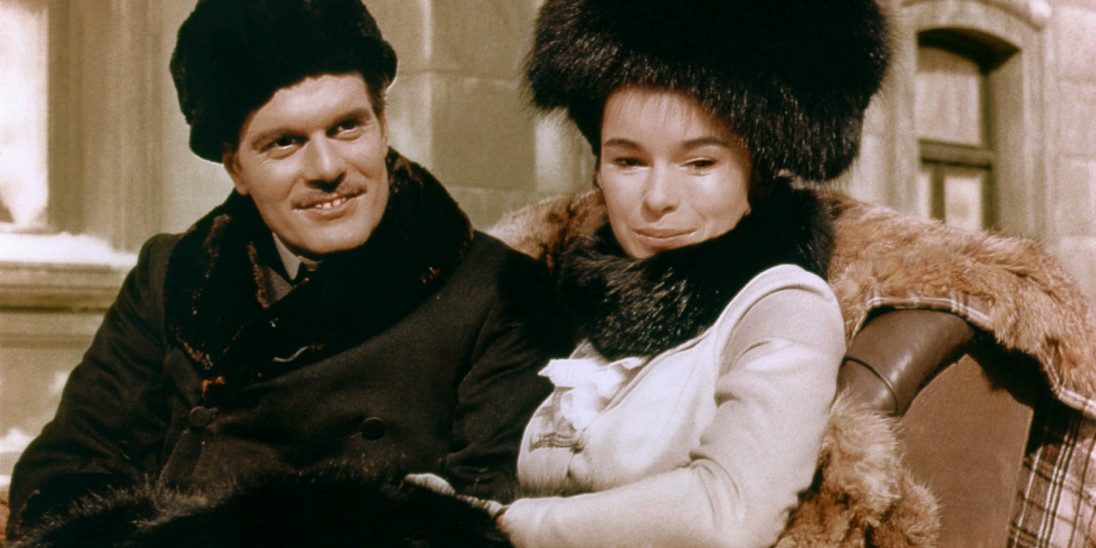
Characters and Performances:
Omar Sharif’s portrayal of Yuri Zhivago is gentle and introspective. His soulful performance captures the quiet suffering of a man torn between love and duty, art and survival. Sharif brings a restrained, almost meditative quality to Zhivago, making him a sympathetic figure whose fate is shaped as much by history as by his own choices.
Julie Christie as Lara is mesmerizing. She embodies vulnerability, strength, and resilience, making Lara a symbol of the tragic beauty of Russia itself. Her chemistry with Sharif is palpable, creating an unforgettable on-screen romance that feels both tender and tragic.
Geraldine Chaplin, as Tonya, plays the devoted wife with grace and understated emotion, making her a more complex character than the typical “other woman” in love triangles. Rod Steiger’s portrayal of the morally ambiguous Komarovsky is both chilling and compelling, providing a necessary contrast to the film’s more idealistic characters. Alec Guinness, as Yuri’s half-brother Yevgraf, offers a calm and measured performance as the film’s narrator and a Soviet official, adding depth to the political narrative.
Cinematography and Visuals:
David Lean’s direction is masterful, and Doctor Zhivago is renowned for its breathtaking cinematography by Freddie Young. The film’s visual splendor, from the harsh snowscapes of Russia to the serene beauty of blooming landscapes, perfectly complements the emotional depth of the story. Lean’s use of the Russian winter as a metaphor for the emotional and political coldness enveloping the characters is particularly striking.
The scenes of war and revolution are epic in scale but retain a personal intimacy, showing the impact of these events on the lives of ordinary people. Whether it’s the grandeur of the frozen Russian wilderness or the haunting emptiness of Yuri and Lara’s abandoned home, the film’s visual composition is unforgettable.![Doctor Zhivago | Epic Film by David Lean [1965] | Britannica](https://cdn.britannica.com/19/176619-050-A02288B3/Omar-Sharif-Doctor-Zhivago-Julie-Christie-David.jpg)
Score:
Maurice Jarre’s score is iconic, with “Lara’s Theme” being one of the most recognizable pieces of film music ever composed. The music beautifully complements the film’s emotional highs and lows, infusing the love story with an air of longing and sadness. The score is as integral to the film’s success as its cinematography, becoming synonymous with the themes of love, loss, and fate that pervade the movie.
Themes:
At its core, Doctor Zhivago is about the conflict between individual desires and societal upheaval. The film explores how war and revolution disrupt the lives of ordinary people, forcing them to make impossible choices between personal happiness and survival. Yuri’s poetry and medical career represent his desire for beauty and order in a world descending into chaos, while his love for Lara represents the fleeting moments of passion and meaning in an otherwise bleak existence.
The film also examines the tension between personal loyalty and political ideology. Yuri’s ambivalence toward the revolution, contrasted with Yevgraf’s staunch Soviet beliefs, reflects the broader conflict between idealism and pragmatism that many people faced during this time.C
Pacing and Criticism:
While Doctor Zhivago is a cinematic masterpiece, it is also a slow burn. At over three hours long, its leisurely pace may be challenging for some viewers. The film takes its time to develop the characters and their relationships, and some critics have argued that the movie’s sprawling narrative lacks the tight focus of David Lean’s earlier epic Lawrence of Arabia. However, the film’s emotional depth and visual grandeur more than compensate for its length.
Another criticism is that the political and historical aspects of the Russian Revolution are sometimes overshadowed by the love story. While the film captures the tragedy of war and revolution, it tends to gloss over some of the complexities of the historical events in favor of focusing on the emotional journey of the characters.
Legacy:
Despite some criticisms, Doctor Zhivago is considered one of the greatest films of all time. Its romantic and tragic story, combined with Lean’s impeccable direction, stunning visuals, and Jarre’s unforgettable score, has made it a classic in the epic film genre. The movie was a major box office success and received five Academy Awards, solidifying its place in cinematic history.
Conclusion:
Doctor Zhivago is a visually stunning, emotionally rich film that tells a deeply personal story set against one of the most turbulent times in history. With masterful performances from Omar Sharif and Julie Christie, a haunting score, and breathtaking cinematography, it remains an epic exploration of love, loss, and the ways in which historical forces shape individual lives. Though its length and pacing may challenge modern viewers, the film’s emotional and visual rewards are well worth the journey.
Rating: ★★★★½ (4.5/5)

